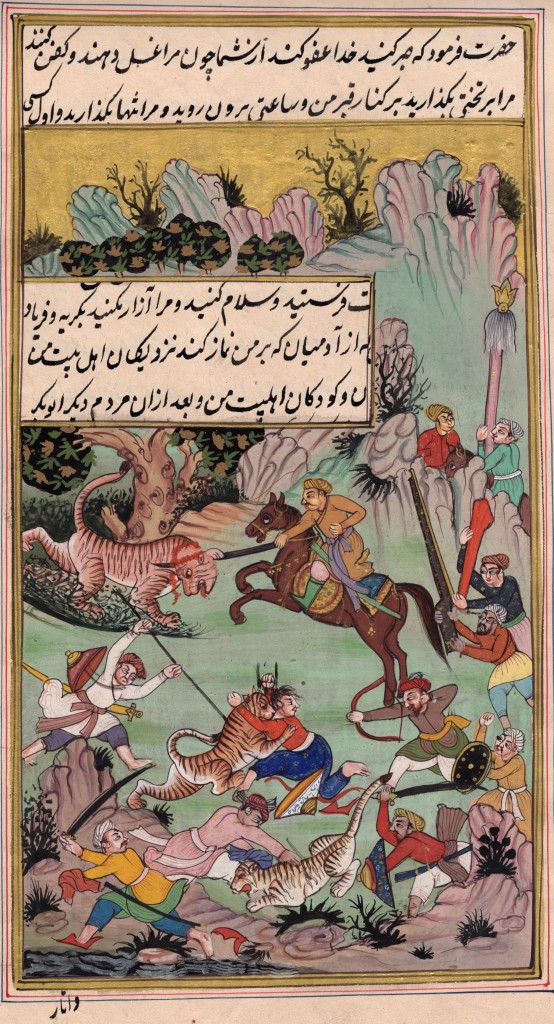 This is an excellent book, which demonstrates that historians do not have to be sequestered in continental ghettos. Allsen is able to cite the Armenian and Georgian Chronicles, the classics of Indian and Persian literature, and the vast bureaucratic documentation of China with the same ease and familiarity as when he cites standard European sources. “Eurasia” actually means something to him. In other words, the man is modern. With this kind of attitude, he is capable of addressing a phenomenon that other historians have ignored: the Royal Hunt. This institution — which often called up an impressive chunk of a society’s resources — persisted as a continuously interconnected phenomenon from the earliest antiquity to near-modern times. It demonstrates that the whole supercontinent of Afro-Eurasia has been a cultural continuum throughout recorded history, with ideas and customs traveling back and forth from end to end to end. Allsen tries to get some sort of handle on how and why the rulers of states engaged in spectacular collective hunting expeditions and maintained vast “game parks”, a custom which transcended all the barriers of empire, language, ecosystem, and religion. His work has no “theory” behind it, only a relentless curiosity and a respect for the sources. The only deficiency that I found was that he seemed to never ask the question “what happened to the meat?”. It’s my hunch that he could have reached a more complete understanding of the phenomenon if he had explored the issues of who got to eat the vast quantities of meat that these hunts produced, how it was distributed, and how this distribution served social and political ends. I’ve noticed that there is a similar absense of the question in studies of Rome’s “games”.
This is an excellent book, which demonstrates that historians do not have to be sequestered in continental ghettos. Allsen is able to cite the Armenian and Georgian Chronicles, the classics of Indian and Persian literature, and the vast bureaucratic documentation of China with the same ease and familiarity as when he cites standard European sources. “Eurasia” actually means something to him. In other words, the man is modern. With this kind of attitude, he is capable of addressing a phenomenon that other historians have ignored: the Royal Hunt. This institution — which often called up an impressive chunk of a society’s resources — persisted as a continuously interconnected phenomenon from the earliest antiquity to near-modern times. It demonstrates that the whole supercontinent of Afro-Eurasia has been a cultural continuum throughout recorded history, with ideas and customs traveling back and forth from end to end to end. Allsen tries to get some sort of handle on how and why the rulers of states engaged in spectacular collective hunting expeditions and maintained vast “game parks”, a custom which transcended all the barriers of empire, language, ecosystem, and religion. His work has no “theory” behind it, only a relentless curiosity and a respect for the sources. The only deficiency that I found was that he seemed to never ask the question “what happened to the meat?”. It’s my hunch that he could have reached a more complete understanding of the phenomenon if he had explored the issues of who got to eat the vast quantities of meat that these hunts produced, how it was distributed, and how this distribution served social and political ends. I’ve noticed that there is a similar absense of the question in studies of Rome’s “games”.
0 Comments.